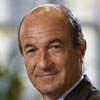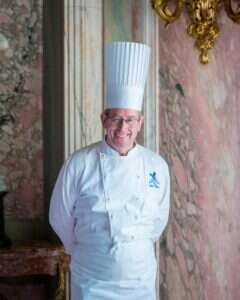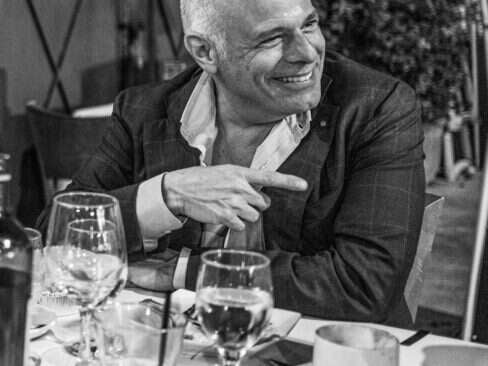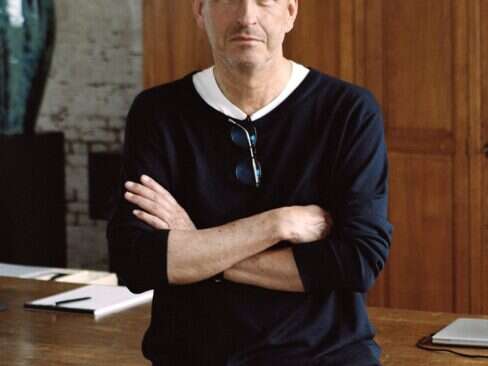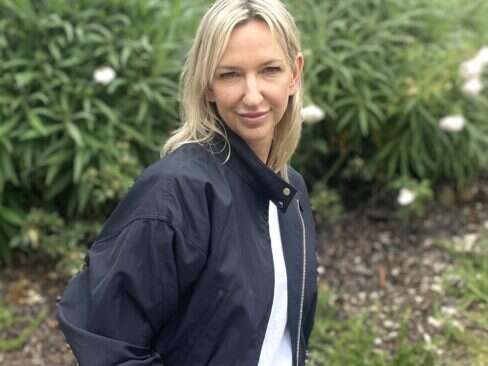
CEOSalvatore Ferragamo
With a history of leading family-owned companies, Michele Norsa is a well-respected chief in Italian business and the global luxury industry. Under his stewardship Salvatore Ferragamo’s fortunes have continued to rapidly rise and its expansion into new products has increased. Between sessions to review new and higher-priced timepieces launching in 2009 and amid the growing financial turmoil of late October, Elite Traveler Editor-in-Chief, Douglas Gollan, caught up with Norsa at his Milan office for a wide-ranging chat.
ET: How’s business? You said it was going very well and then things have sort of gone a little bit crazy.
Michele Norsa: If we look at the year 2008, up until a few months ago—until September—it was still a very good year. And I think even at the end of the year, it will be a good year.
But after the end of September, things became so erratic and so volatile that it’s very difficult to forecast; every day you face new challenges. Every day the financial and political decisions can affect your market, and the luxury market is no different. Of course, the very elite still have the power to buy and are not as concerned. But there are a lot of people who still have the money to spend but change their mind, especially men. Women keep spending though and are very influenced by fashion.
ET: So for next year, are there any changes you’re making to be prepared for a sort of uncertain future?
Michele Norsa: As far as travel, for example, I saw the figures at the end of September and airports are outperforming all of the other categories. People still need to travel, people have time to spend in the airport.
There’s a lot of opportunity to buy in the airport. I was in terminal five of London Heathrow at seven o’clock in the morning, and there were things I needed. So I think that this is still an area of great opportunity and we are still pushing. We now have 119 points of sales in the airport, and we open 20 to 25 every year. This is something that we will keep up with.
The second opportunity I want to develop is new markets. And when I talk about new markets, it’s not China or Brazil or India anymore. We’re talking about Vietnam, Indonesia, the Philippines. We’re talking about markets where there are a lot of rich people. And of course, we are in a global business, and we have the opportunity to grow our business bigger and bigger every year. I think this is also a challenge for the management because it’s a challenge to understand new customers and how to reach them.
And so it’s a game of media, communication, events and strategy. I’m also thinking about big global events. I am imagining having another couple of big events around the world because in some markets the impact of being there—with all of the products, a fashion show, big charity auctions—has a big impact on a lot of customers, and this is going to be one of the life vessels of next year.
ET: Just speaking of your growth around the world and the current situation, are there any directives you’ve given to your management on how you want them to act or behave, given some of the uncertainty that’s going on right now?
Michele Norsa: One very good directive is that you probably can renegotiate everything.
Even if you have already signed, it can be renegotiated, and I think that in the luxury industry, each business has very positive trends—six, seven years of growth—and people have become less aggressive. Now, I think we have to go back to the fundamentals. We have to think about it like food or consumer products where you have very small growth, very small margins. I think we have to find a different way of incentivizing people. So my directive is to start renegotiating everything. From Japan to the United States to Macau, we will discover that we can do the same thing at a lower price, lower cost.
ET: Now you were talking about big events, and I think you just came back from Dubai where you launched a new Ferragamo product. So maybe you could tell us a little bit about what went on in Dubai.
Michele Norsa: This was a very interesting venture we started about 12 months ago. I met with these people who were building this tower which is going to be the highest residential building. The building is like a fan with a very short base. It’s really something and from a technical point of view, a design point of view, it’s absolutely exceptional.
We decided to design the interior of the top apartments. I don’t know how many––we are still discussing. These apartments are probably going to be higher than 400 meters from the ground—from 400 to 550—and every apartment is one floor. The service inside the building is exceptional and absolutely private. There’s no part of the building that is open to the public. There’s a long-term project to enter in some way into home furnishing, home decoration. I’m already working almost every week on new projects in the Middle East, in China, in other areas of the world. I think a fashion house developing interior design for luxury real estate could be a very important development.
ET: One of the other brand’s extensions was watches. So maybe you can give us a little update on what’s happening in that category.
Michele Norsa: Watches is a completely new adventure for us because Ferragamo only designed one watch in the past. And now we started just a few months ago to sell about double of what was projected. We are selling more expensive watches than we expected. And I think we discovered a world where there is real potential for a strong brand name.
I think it’s also refreshing to spend time developing a new product and it’s giving us the opportunity to further communication of the brand. So what we project in the image of the watches is very luxurious. And again it’s one of the top categories for the developing market of various people from Russia to China to the Middle East. These markets are really hungry for watches and luxury categories, and I think it was a very smart decision at that time.
ET: As far as watches and home, if I walk into the Ferragamo store on Fifth Avenue in New York or if I go in Dubai, am I going to see all of the products in the store or are there different distribution channels? How are you handling that?
Michele Norsa: I think that we have to realize that a flagship is of course where you have the opportunity to present the whole lifestyle and all of the different products. The smaller stores in secondary cities, like in China, are where you probably have to give the customer what he can afford. What I think is important is that when you enter the store, you have the same sense of service and luxury.
In the last 15 days, we just opened three new stores in India. In India, we opened in Bangalore, Mumbai, and two days ago we opened the first store in Delhi. And of course, this means entering into a new market in terms of consumer behavior, in terms of potential to achieve visibility in a $1.2 billion market. Of course, the top stores are really a kind of showcase where you can show everything. But it’s important that you keep the same image, the same spirit.
ET: All right let’s switch gears a little bit. Maybe tell our readers a little bit about your history and your background and some of your past experiences.
Michele Norsa: First of all, my background is in publishing, and that’s the reason I still love magazines, books and newspapers so much. I live in a house with more than 5,000 books and miles of magazines. And every day I go home with 10 or 15 pounds of magazines; everybody reads them. My background is extremely international. I’ve lived in Italy of course, and in Geneva, New York, Buenos Aires, Spain, Venice and now in Florence. I keep changing every four or five years.
I’ve always been working for family companies, and this is very special because not many people have worked in family—and in most cases, family public—companies. I went from Rizzoli publishers in Italy to Marzotto, the largest fashion textiles family in Italy, and now to Salvatore Ferragamo, which is an 80-year-old company. So I must say, I specialize in working with families. And this has become a pleasure because we are living with very special people. Sometimes it’s probably not as easy as working for a managerial company. Sometimes it’s more time-consuming. But it’s such a pleasure sharing time with exceptional people.
ET: Talk a little bit about some of the challenges of working in a family company, how you’ve made these relationships successful and how you make it work.
Michele Norsa: I think the challenge in every family is that there is a very strong heritage, there’s a very strong history—from the time of the founder to the second generation and the third generation. So the moment the family becomes bigger, it becomes more difficult and more complicated. The relations between brothers—like the first generation in Benetton or the second generation when I was in Rizzoli or when I was with Marzotto—were completely different.
But there is a special love for the brand, for the name, there’s respect and specific care to avoid a kind of brand dissolution. These are values which you experience. And then you also experience the pleasure of living inside buildings which are historical, offices which are special. I think it adds to the quality of life. On the other side, the disadvantage is that normally families are less generous than managerial companies. So you live in a better environment, but you make less money.
ET: You mentioned India before, and I think as you know our leaders are successful entrepreneurs like yourself, so a lot of people are interested in going into business in India because they see all the statistics. What would be some of the advice you would give me before I leapt in?
Michele Norsa: India’s probably one of the countries I know best. I’ve been traveling to India for 35 years. I’ve seen all different times of development. I must say it’s probably the past three years that have really been different than the past. India has fantastic potential but there are some disadvantages.
There are two big disadvantages—number one is bureaucracy, which was left from the British. So the bureaucracy remains huge. And the second is lack of infrastructure. To develop some businesses, you really need infrastructure. You cannot establish something by yourself if you don’t have infrastructure. But in the past two, three years, I have seen big changes. Not only Ferragamo, but other luxury companies have established themselves in India.
And I think the moment it starts moving, which is going to be very soon—maybe not immediately but in one or two years—India’s going to become a very, very, very important market. I think the quality of the people, the common language, high degree of culture, respect for other cultures and the likability of the people definitely make India an easier country to work with than a country like China.
ET: Are there any things in particular that a novice should think about before they go in—in terms of selecting a local partner, understanding the bureaucracy and the laws?
Michele Norsa: I think the local partner there is still very important because of the culture, the distance, the size—even inside India you have different cultures, different regions, different conditions. So it’s very important for somebody to understand. And it’s very important to have, I believe, a large company. Our partner is a large real estate company, one of the largest in the world. Very cultivated, very sophisticated people.
So you have a lot to teach them, but of course they have the knowledge of the territory, of the background, of the local ways which is fundamental. I think entering India alone in any kind of industry is too big a challenge. I think having a partner is definitely important and probably easier than in other Asian countries.
ET: You are an elite traveler with your schedule and your globetrotting so maybe you could tell us about some of your favorite places to visit, both for business and leisure, and any favorite hotels or resorts?
Michele Norsa: I must say I’m very interested in traveling, and I normally spend my vacation on both business and pleasure. This summer, for example, I was in Vietnam. Then I traveled also in Thailand and Singapore for business.
When you go to Bangkok and stay at the Oriental, I think it is still one of the top two, top three hotels in the world. And when you go to Singapore, I still like Raffles. I think it is important when you travel in Asia to stay in hotels where there is history, where there is a past, where other travelers have gone before. Modern hotels are everywhere now.
But what is also important, I think, is the quality you get in the hotels in Asia is incomparable, unparalleled. This is one of the big weakness of Europe. Europe is complaining because we don’t have enough tourists. But for the price people pay, they cannot have what they have in Asia. That’s why I believe, from a point of view of a business traveler and also as a tourist, Asia is paradise.
ET: You mentioned service but high-end luxury retail has always had a reputation, until recently, for a little bit of a snooty outlook on service. So what, if anything, are you doing in terms of trying to change the Ferragamo retail experience?
Michele Norsa: I just went to a convention in Milan because I really wanted to change what a shopping experience is. I believe that very often, in the mono-brand boutiques, people are not friendly. So really what I tried to learn, for example in the industry of hotels, is their approach to customer service—looking into the eyes, calling you by name, smiling. I think this is going to be one of the challenges of retailing.
People want to be treated in a special way even if they buy a not-very-expensive item. Even if you enter into a store and you want to buy just a $200 belt, you need to be serviced and treated as if you were buying a $20,000 crocodile bag. So this is something that we want to present to the customers. The warmth of an Italian company, of an Italian family, must be transmitted to everybody who enters the store. So this is what we are really trying to implement.
ET: So outside of work, do you have any hobbies or passions or things you like to do for fun?
Michele Norsa: I play golf sometimes. I also like deep sea fishing and big game fishing is a pleasure of mine. What I still like a lot when I travel is to buy antique pieces and special fabrics. And I think it is also part of the work. So every time, mostly in Asia, when you go from Vietnam to Thailand to Singapore, you have the opportunity to see things and to increase your culture in art, in architecture and also in decoration.
ET: You were mentioning you went antiquing. Any places for any of our readers, if they’re also interested in antiques, that you would recommend they check out?
Michele Norsa: There are some very nice galleries in Bangkok where I buy elephants. And I also buy a lot of things which bring good luck and are also favorable for the business. So I like very much buying things that can generate good feelings in the house or in the office. And I think I have very nice pieces. I think Bangkok is one of the best places for shopping.
ET: We were talking about the extensions with home and watches. Any other things that you have planned for the future?
Michele Norsa: I think there are lots of opportunities for a strong brand like ours. What definitely is a great opportunity is online business. Until a few years ago, we thought the luxury industry was different from the rest of the consumers. Now we discover that online business is becoming extremely important—specifically in some markets. I think Korea, for example, is a fantastic market where people are very used to computers and also China and the United States, of course. The whole luxury industry will have to invest and develop the online business in a much more important way.
ET: Donatella Versace is doing private jets and helicopters and Hermès is getting into yachts. Are you looking into anything like that?
Michele Norsa: I think we are too busy now with what we have to do. I love airplanes; I love helicopters so I would really love to be able to do something. But what is also important is trying to develop things which are consistent with our tradition. So home design is definitely something which is closer to Ferragamo than technology, but I never say no. I think why not, maybe in the future.
ET: If you hadn’t gotten into publishing and then fashion, are there other careers that you could have seen yourself doing?
Michele Norsa: I have a dream to write a book. I already have the idea, I already have a title, I already have some notes. I think it will probably be a book related to the family business I’ve been working in. When I finish my experience with Ferragamo, it may be something interesting for me to do. And it is also a way to give back to the publishing business which has given me a lot. So this is my dream.
ET: So no novels, no murder mysteries?
Michele Norsa: No. I think a novel is something you probably should develop earlier in your life. I think you can sell financial and business stories in a way that can create a lot of interest.
ET: Anything else that you’d like to add or cover or talk about?
Michele Norsa: I think what might be interesting is really the synergy between publishing and fashion. These are not going to be easy times for advertising because some of the large industries like automotive and some of the consumer goods are going to suffer. But fashion and publishing are so close, they really need each other.
I think what would also be very interesting is trying to develop in the next year better ways to develop business. I don’t mean just selling advertising pages, but trying to create products together, organizing them together. The two communities are so close. I think there’s a possibility to develop something more interesting and more modern than just the tradition of business which has been done until now.
ET: Any particular ideas you have?
Michele Norsa: I do, but I’m going to work on it in the future.





